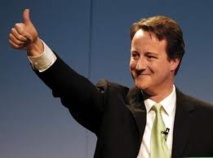Deadlock remains over British press regulation despite new proposals
Robin Millard
LONDON, Robin Millard- British politicians on Friday published an amended version of their proposed new system of press regulation, but it looked unlikely to break the deadlock after key industry players signalled they would not accept it.
Negotiations have been going on for 11 months on how to address the failings revealed by the phone-hacking scandal at Rupert Murdoch's News of the World, based on the recommendations made in last year's Leveson report.
Culture minister Maria Miller on Friday presented amendments to a proposal agreed by the three main political parties in March, which she said should address some of the newspaper industry's concerns.

But there is no change to the proposal that the system could be amended with the support of two-thirds of lawmakers, which was initially intended as a safeguard for the press but has sparked fears of political interference.
The Industry Steering Group, which represents national, regional and local newspapers, said it would examine the amendments but retained deep reservations.
"This remains a charter written by politicians, imposed by politicians and controlled by politicians," the group said.
It noted that judge Brian Leveson had called in his report into the culture, ethics and practices of the press for voluntary, independent self-regulation.
"It is impossible to see how a regulator operating under rules imposed by politicians, and enforced by draconian and discriminatory provisions for damages and costs in civil cases, could be said to be either voluntary or independent," the group said.
Bob Satchwell, executive director of the Society of Editors, told the BBC: "What we've got to be very careful of is making sure that politicians don't have an ability to control the press in the future."
Their opposition raises the possibility that newspapers will create their own system of self-regulation, based on proposals rejected by the politicians earlier this week.
Chris Blackhurst, group content editor at the Independent and London's Evening Standard newspaper, warned: "I hope we don't end up in a situation where we end up with an array of regulators. That would be completely baffling."
Britain's newspapers are currently self-regulated, but critics say the organisation that deals with grievances, the Press Complaints Commission, is a toothless body.
Both politicians and the press have proposed a replacement organisation, which would adjudicate complaints and impose fines of up to £1 million ($1.6 million, 1.2 million euros).
But they differ on what powers it would have, how it would be established and how it would be monitored.
Hacked Off, a lobby group campaigning for tighter press regulation which is supported by actor Hugh Grant, urged newspapers to sign up to the new deal.
Executive director Brian Cathcart said the proposed fee to use the arbitration service may deter members of the public but said it was "far better" than under the existing system.
"The way is now open to create a system of independent, effective press self-regulation that will benefit the public and poses no threat whatever to freedom of expression," he said.
Murdoch shut down the 168-year-old News of the World in 2011 after it emerged the tabloid had hacked into the mobile phone of Milly Dowler, a teenage girl who was later found murdered.
His newspaper group has paid out millions of pounds to other victims of phone hacking, and the scandal has spawned a series of criminal charges and trials.
-----------------------------------------------------------------------------------------------------